- Login
Critical Spatial Practice
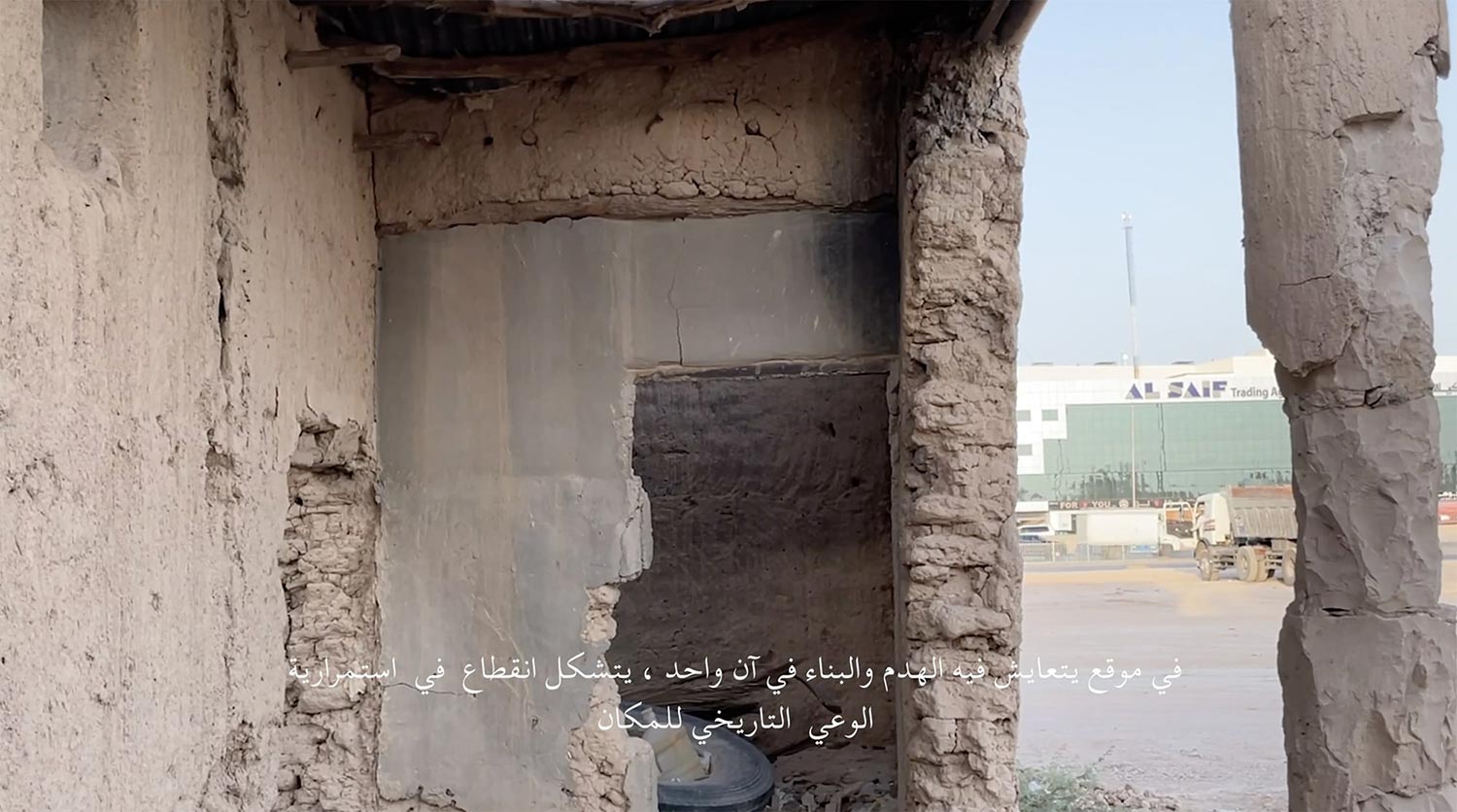
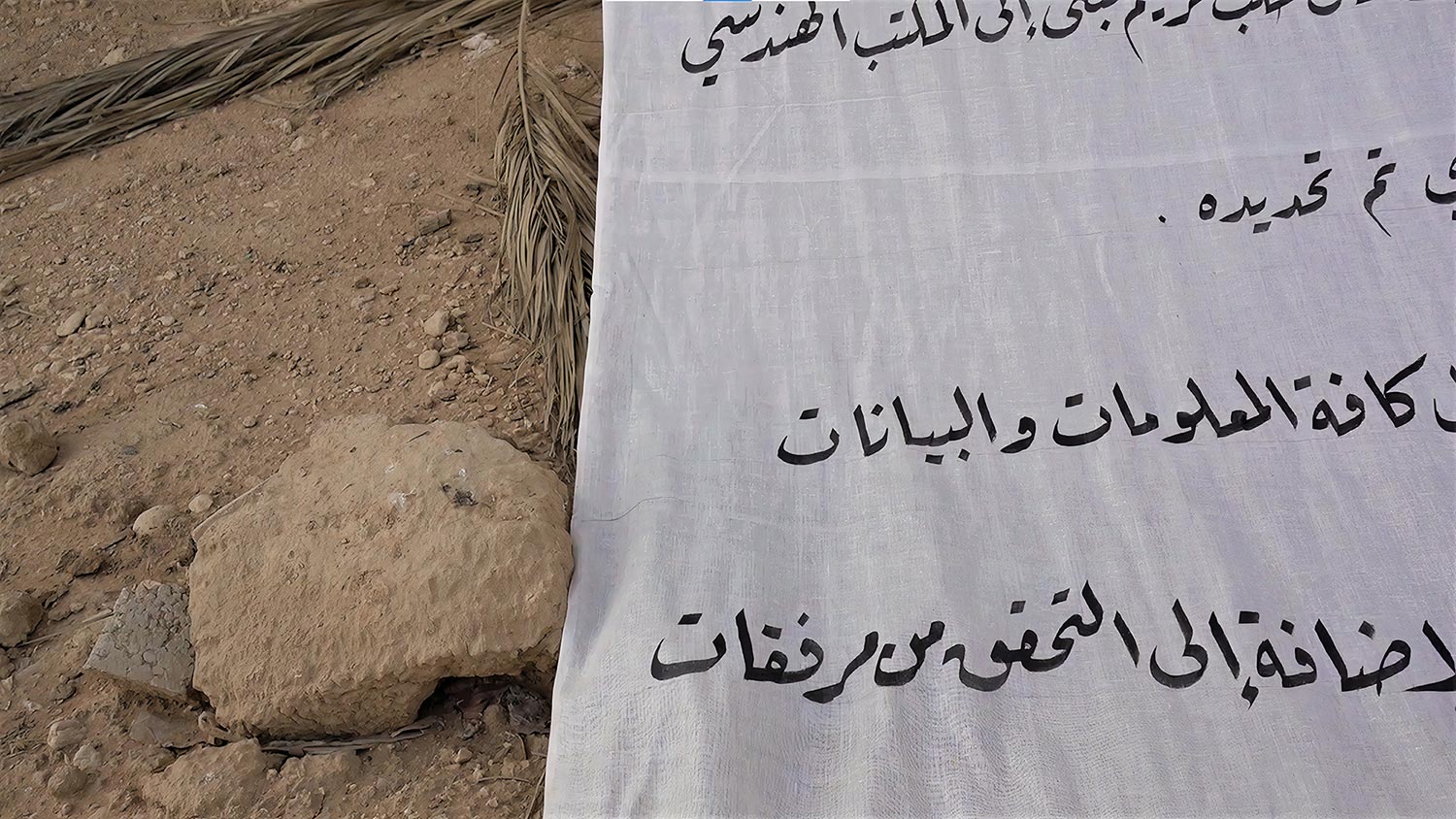
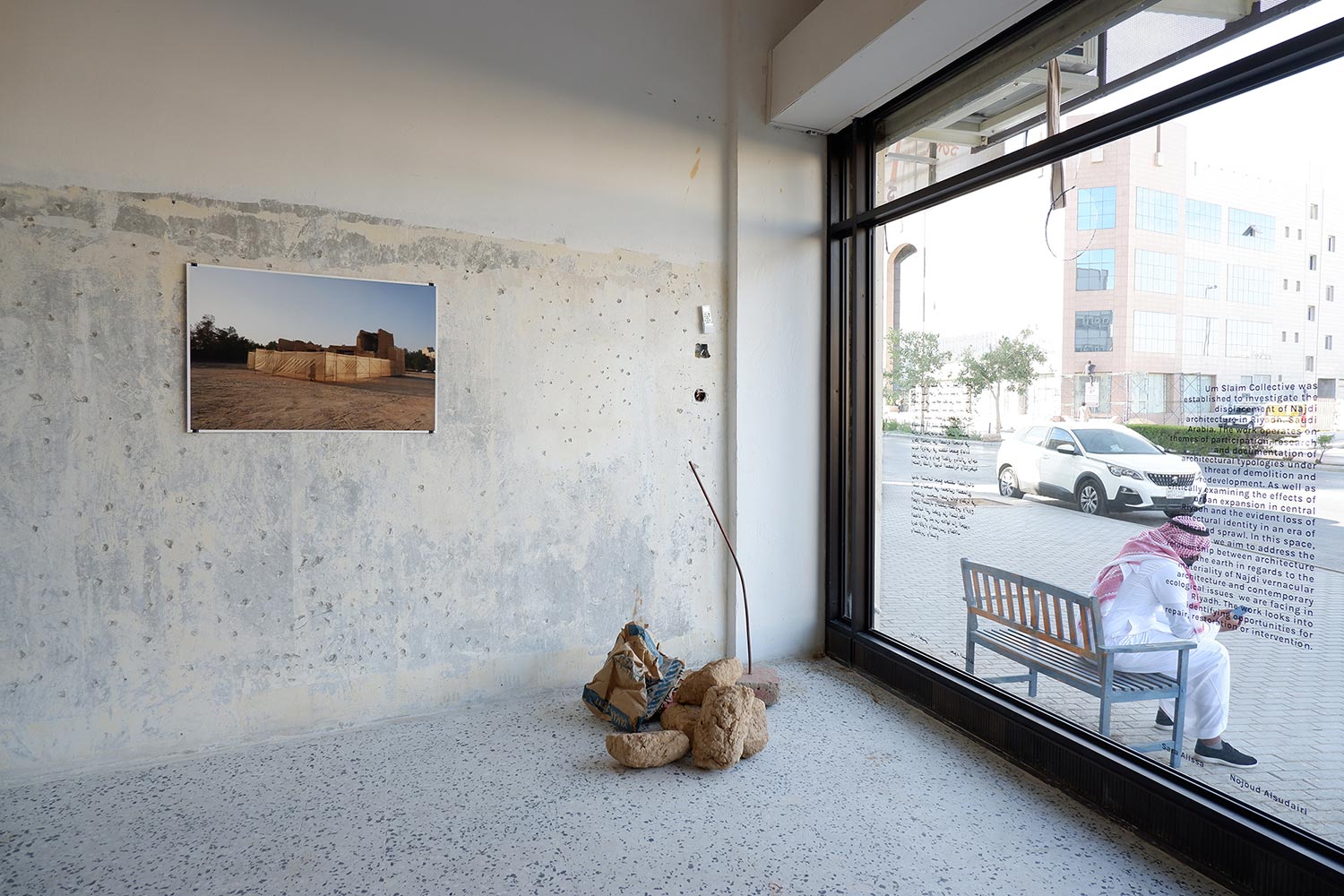
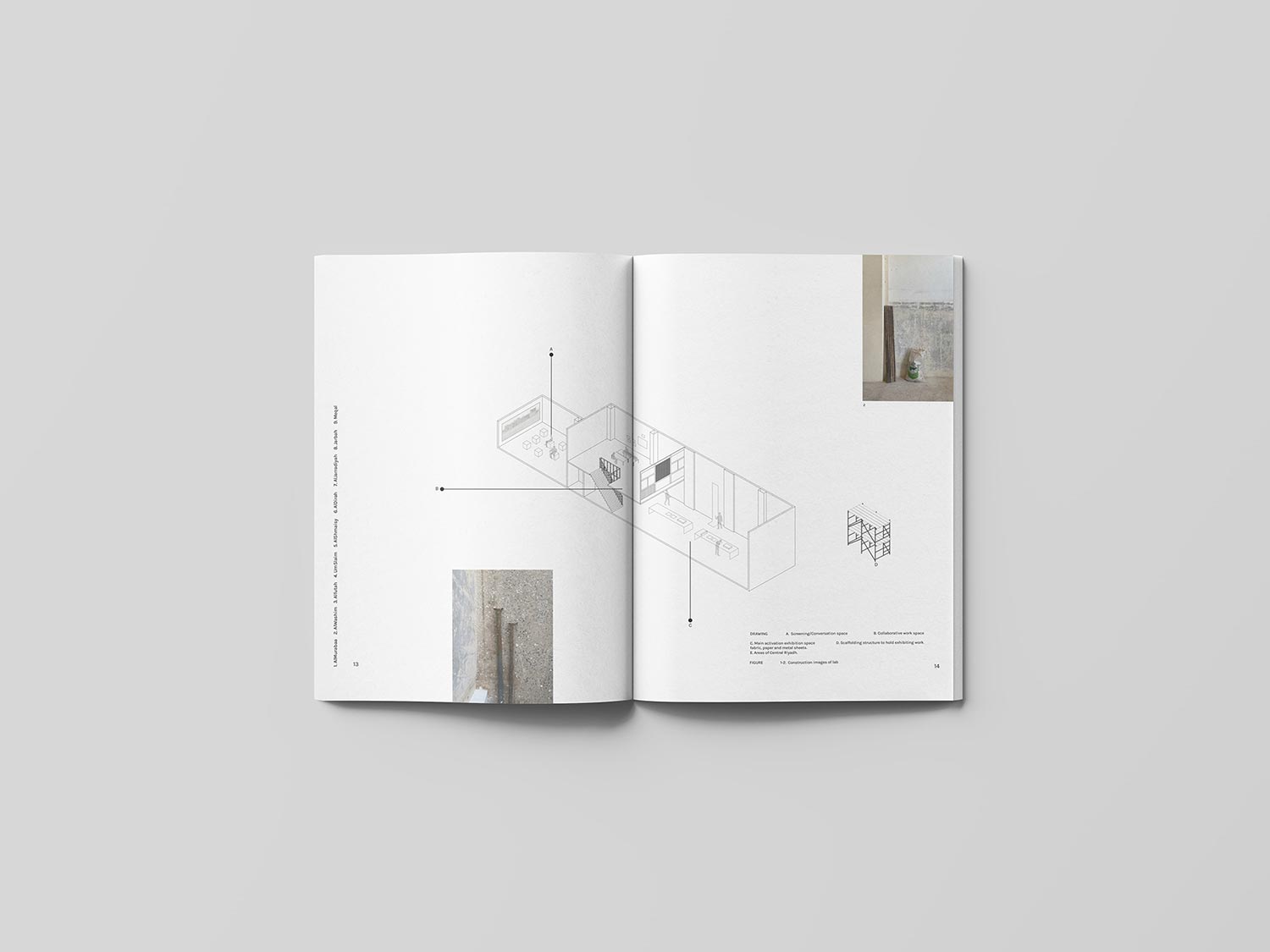
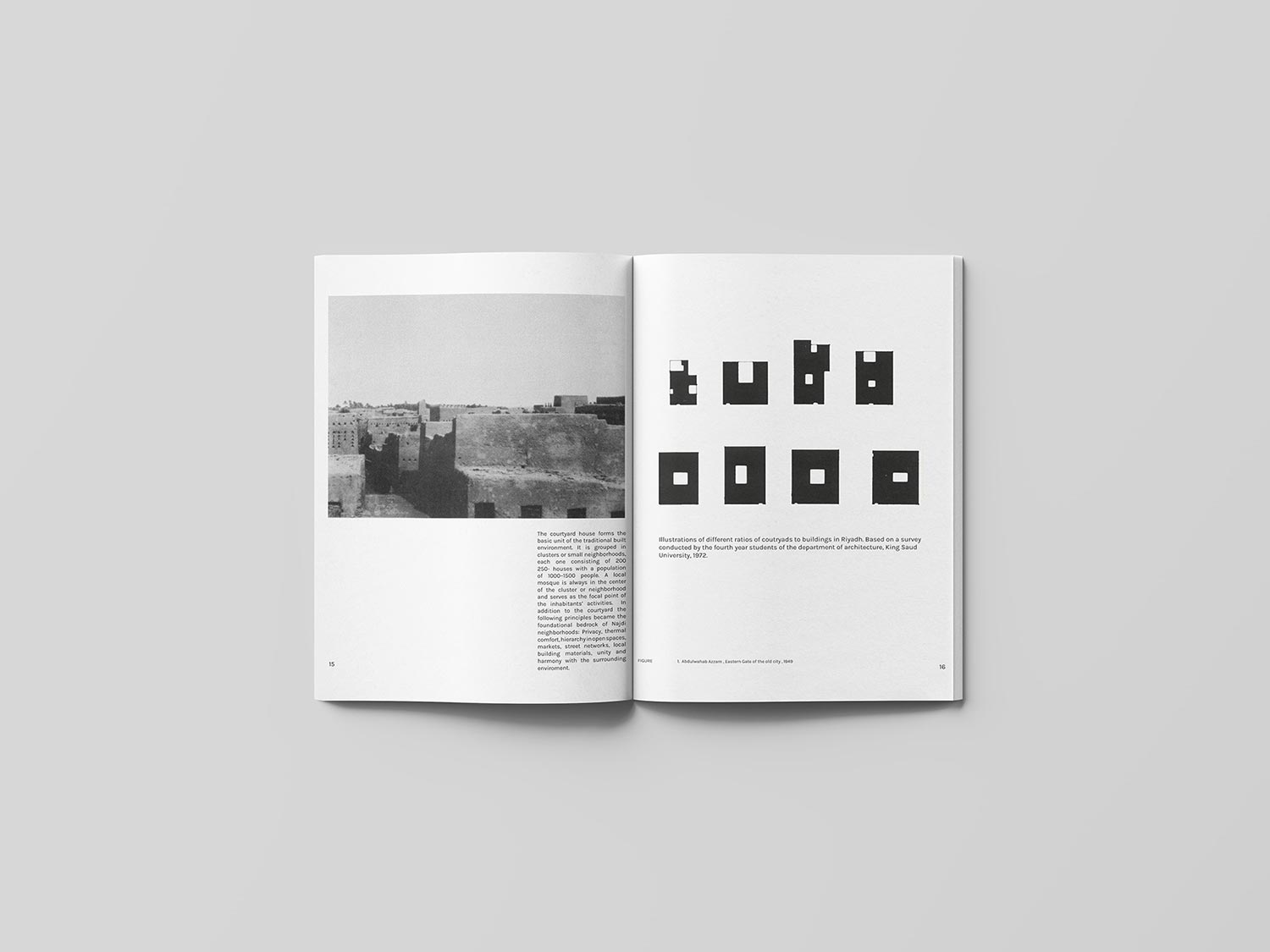
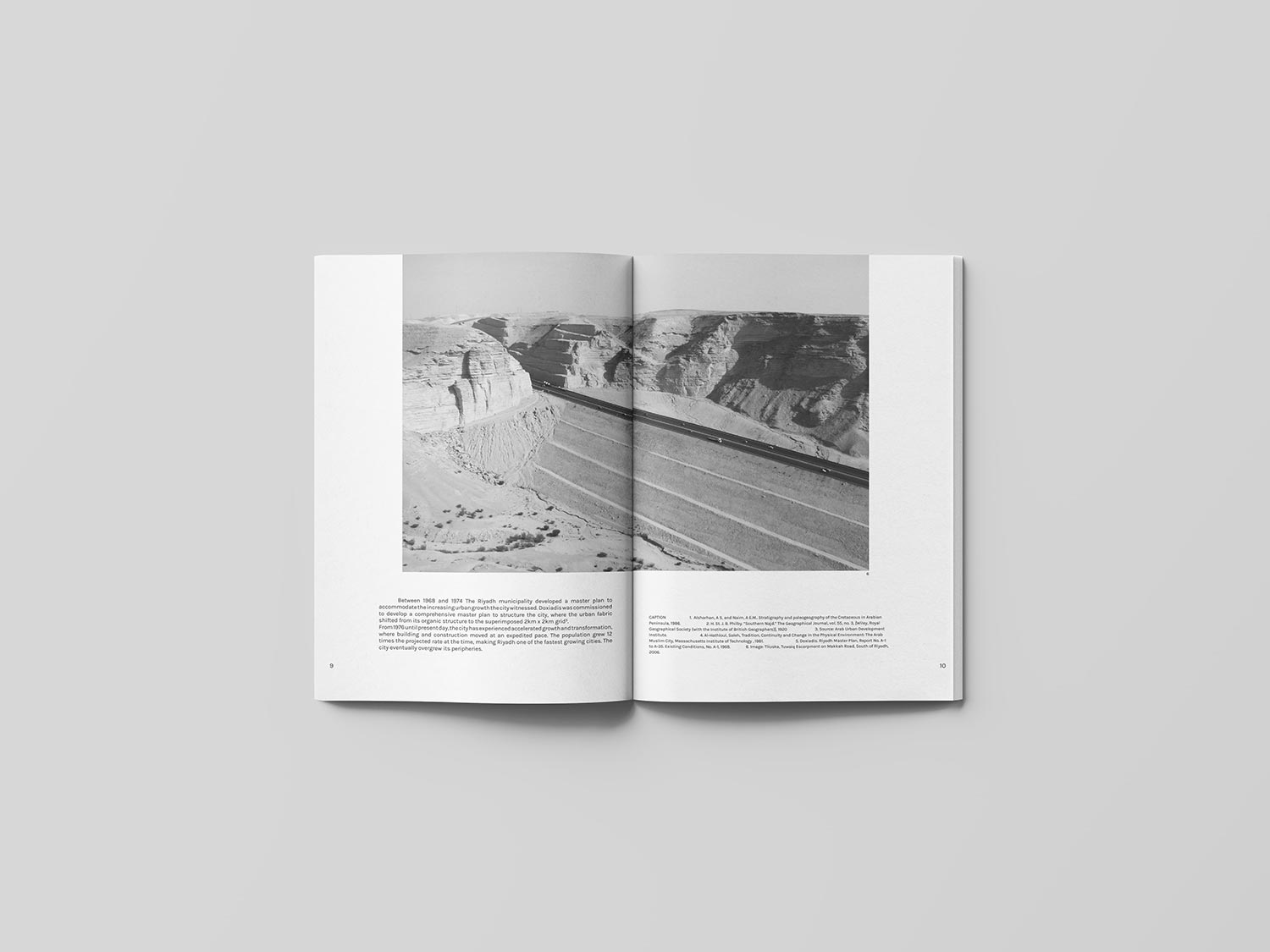
“In a space where both construction and demolition coexist to form a void in the memory of the urban landscape, an awareness exists – out of necessity – to provide an essential continuity to the history of place.”
The Um Slaim Collective is a critical investigation of the displacement of Najdi architecture in an area of central Riyadh, Saudi Arabia. This is an area undergoing large-scale redevelopment and regeneration, and thus facing the potential loss of architectural identity and social history. The project operates through a research lab situated between the AlMurabba area and the AlFutah neighbourhood in a mixed use residential and commercial building. The space has been vacant for two years after it served as a small cafeteria/restaurant prior.
The Um Slaim collective is based on an interdisciplinary collaboration with other artists, architects, and practitioners to push boundaries that are essential for the integration of ideas, processes, and interventions. The work navigates through themes of participation, research, and documentation of architectural typologies under threat of demolition and redevelopment, as well as critically examining the effects of urban expansion in central Riyadh. We aim to address the relationship between architecture and the earth regarding the materiality of Najdi vernacular architecture, contemporary ecological issues and the questions we are facing in the city at the threshold of accelerated development, and with the potentially devastating impacts of climate change and the end of the oil age.
The project also addresses the residents of the area as stakeholders, as well as a wider international network of academics and practitioners. So far, the work has materialized in a physical and visual manifesto highlighting the process and outcomes of this exploration. The Um Slaim collective is also a space devoted to further research into Najdi architecture and its changing morphologies in current contemporary practices. It is currently open to collaborators and community members as a physical archive and research space and hosts different activations that include an exhibition on material experimentations, screenings and talks around the city’s past, present, and future.
In 2019, Sara Alissa & Nojoud Alsudairi co-founded syn architects, an interdisciplinary design and research practice based in Riyadh, Saudi Arabia. The work focuses on ecologically sensitive architectural design that derives its aesthetics from a contextual awareness of nature and looks into the essence of the materials and the sites in which they are found. Recently, they established the Um Slaim Collective, an outcome of the Situated Practice MA at the Bartlett, where they completed the program with distinction in 2022. They are also the co-founders of SaudiArachitecture.org, an independent organization that aims to research and archive modernist and post-modernist buildings in Saudi Arabia.
Looking into existing conditions to identify opportunities for repair, restoration, or intervention, we explore several methods to gather data that consists of archival research, collection of material, site mapping, and interviews with residents in the area. The project has worked towards a number of on-site activations and workshops that have provided more insights into the non-physical aspects of this analysis; it was also critical to engage with this site through various modes of artistic and research practice in the realm of both architecture and urbanism.
Cavart, radical architectural practice (1973) Padua, Italy.
Black Mountain College, Liberal Arts College (1993) North Carolina, United States.
Assemble, multi-disciplinary collective (2010) London, United Kingdom.



































































